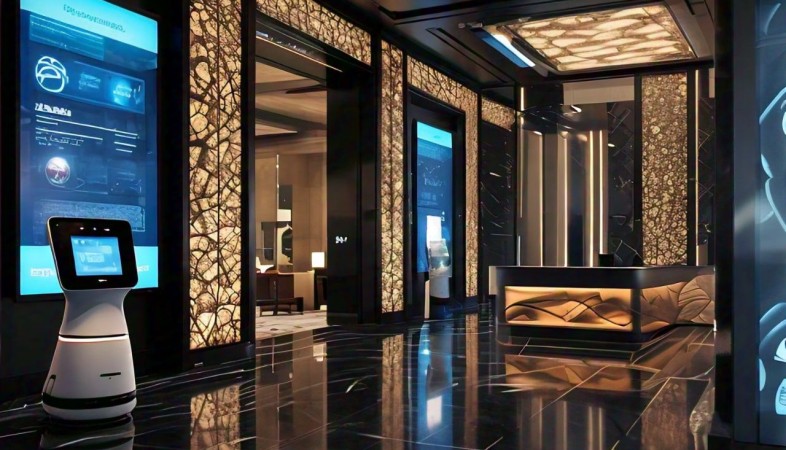Building Emotional Connections with Guests: Training the Front Office Team
The front office team plays a pivotal role in this process, as they are the first point of contact and the face of the establishment.
In the hospitality industry, creating a memorable experience
goes beyond providing basic services; it involves forging emotional connections
with guests. The front office team plays a pivotal role in this process, as
they are the first point of contact and the face of the establishment. To
foster these meaningful relationships, it is essential to invest in
comprehensive training programs that focus on emotional intelligence, active
listening, and personalized service. This approach not only enhances guest
satisfaction but also cultivates loyalty and encourages repeat business.
Emotional intelligence is a cornerstone of effective guest interaction. Training front office staff to recognize and manage their emotions, as well as understand the feelings of others, can significantly improve the guest experience. Employees equipped with emotional intelligence are better prepared to handle stressful situations and respond empathetically to guests’ needs. For example, a guest who expresses frustration about a delayed check-in can benefit from a front desk agent who actively listens, validates their feelings, and offers sincere apologies. Such interactions can transform a potentially negative experience into a positive one, fostering a sense of trust and connection.
Active listening is another crucial skill that should be emphasized in training programs. Front office staff must learn to listen attentively to guests, picking up on verbal and non-verbal cues. By doing so, they can address concerns effectively and anticipate needs before they arise. For instance, a staff member who notices a guest’s body language indicating discomfort can approach them proactively, offering assistance or a solution. This level of attentiveness creates a welcoming atmosphere and makes guests feel valued, leading to a stronger emotional bond with the hotel.
Personalization is key to building emotional connections. Training should encourage front office teams to gather and utilize information about guests to tailor their interactions. This could include remembering a returning guest's name, preferences, or special occasions. Simple gestures, such as offering a complimentary dessert for a birthday or recommending activities based on previous visits, can leave a lasting impression. Personalization demonstrates that the hotel values its guests as individuals, not just as transactions, deepening the emotional connection.
Role-playing exercises can be an effective training tool for developing these skills. By simulating various guest scenarios, staff can practice their emotional intelligence and active listening in a safe environment. These exercises can help them navigate challenging interactions, refine their communication skills, and learn how to create positive experiences. Regular feedback from trainers can further enhance their development, ensuring that they feel confident in their abilities to connect with guests emotionally.
Furthermore, training should also include an emphasis on cultural awareness and sensitivity. In an increasingly globalized world, front office staff will encounter guests from diverse backgrounds. Understanding cultural differences in communication styles, customs, and expectations can significantly improve interactions. Providing training that focuses on cultural competence helps staff approach every guest with respect and understanding, allowing for more meaningful connections.
Recognizing and rewarding staff who excel in building emotional connections with guests can also enhance the overall service culture. Implementing recognition programs that highlight exceptional service can motivate the front office team to strive for excellence. When employees feel appreciated for their efforts, they are more likely to engage emotionally with guests, creating a cycle of positive interactions.
In addition to formal training, ongoing professional development opportunities can contribute to building a guest-centered culture. Workshops, seminars, and conferences focused on customer service trends and emotional intelligence can keep the front office team informed and inspired. Creating a culture of continuous learning encourages staff to refine their skills and adapt to changing guest expectations, ultimately leading to deeper emotional connections.
Building emotional connections with guests is essential for enhancing the hospitality experience. By prioritizing training that emphasizes emotional intelligence, active listening, and personalization, front office teams can create lasting relationships with guests. Role-playing exercises, cultural awareness training, and recognition programs further support the development of these skills. As the hospitality industry evolves, investing in the emotional intelligence of front office staff will be crucial for fostering loyalty, driving repeat business, and ultimately elevating the overall guest experience.
.png)





























